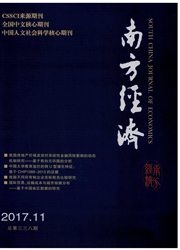

 中文摘要:
中文摘要:
国际反洗钱预防政策的传导过程可以用政策工具、中间目标和政策目标来描述,政策工具是激励措施,中间目标是合规程度、报告质量和洗钱规模,政策目标是制止上游犯罪,预防恐怖融资和维护金融稳定;也可以采用双层委托代理关系来描述,第一层级的委托人是国际组织,代理人是各国政府,第二层级的委托人是各国政府,代理人是各中介部门。通过双层委托代理模型的推导,可以得出:国际反洗钱预防政策的有效性取决于各国政府和中介部门的努力程度;反洗钱利益主体是否积极努力,与相关的激励机制密切相关。根据政策传导的衡量指标,结合国内外反洗钱预防政策实施现状,进行实证分析,可以剖析出反洗钱有效性不足的主要原因,并据此给出相应的对策。
 英文摘要:
英文摘要:
The conductive process of the international prevention policy can be described by policy instrument, intermediary goal and policy goal. The incentive mechanism is the policy instrument; the degree of compliance, the quality of the SARs and the money laundering scale are the intermediary goal; stopping the predicate, preventing the financing of terrorism and maintaining financial stability are the policy goal. It can also be described by a double principal - agent relationship. The principal of the first level is the international organization and the agent is every government; the principal of the second level is every government and the agent is every intermediary department. After the inference of the double principal - agent model, we can conclude that the effectiveness of the international prevention policy of anti - money laundering depends on the effort level of every government and every intermediary. Whether the stakeholders of the AML policy are diligent or not, lies on the incentive mechanism. Based on the measurable indicator of the conductive process, combined with the implement of the international prevention policy of anti - money laundering, we can make an empirical analysis, and find the main reasons of the lack of the effectiveness of the international prevention policy of anti - money laundering, and then provide the countermeasures.
 同期刊论文项目
同期刊论文项目
 同项目期刊论文
同项目期刊论文
 期刊信息
期刊信息
